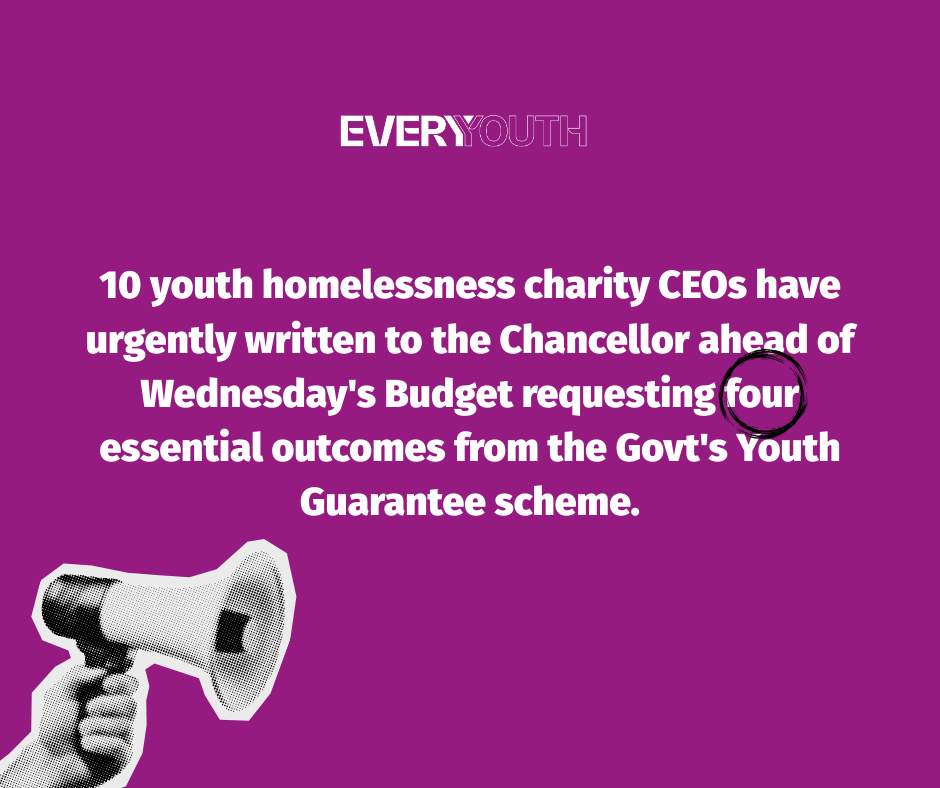Ten leaders of youth homelessness charities across the UK have urgently written to the Chancellor outlining what steps must be taken to ensure the Government’s Youth Guarantee scheme leads to meaningful, long term jobs for thousands of vulnerable young people.
On Wednesday November 26 Rachel Reeves unveiled the Government’s plans to get young people back into work, including £820m in funding over the next three years for the Youth Guarantee.
Under the new scheme, every eligible young person who has been on Universal Credit for 18 months without working or studying will be offered guaranteed paid work, delivered by the Department for Work and Pensions (DWP).
On Wednesday the Chancellor said this will give young people “the support and opportunity that they deserve” and will guarantee “every young person a place in college, an apprenticeship or personalised job support”.
Ms Reeves also announced that training under-25 apprentices will become “completely free” for small and medium-sized enterprises, and confirmed that former Health Secretary Alan Milburn will review the causes of rising youth inactivity.
Also noteworthy for young people was an increase to the national minimum wage, living wage and apprenticeship wage from April 2026.
The national living wage will rise by 4.1 per cent to £12.71 an hour for eligible workers aged 21 and over while the national minimum wage rate for 18- to 20-year-olds will increase by 8.5 per cent to £10.85 an hour. For 16- to 17-year-olds and those on apprenticeships, the national minimum wage will increase by 6 per cent to £8 an hour.

The EveryYouth Network is fully invested in supporting the Youth Guarantee. But if we are to address record highs of youth unemployment in the UK right now, guaranteed work placements will only be successful if they lead to meaningful, full-time work for all young people and a mutually beneficial relationship between employers and their new employees. Work placements in isolation will not guarantee success.
Youth unemployment has increased from 14.8% a year ago to 15.3%, the highest level outside the Covid pandemic since 2015. Almost half of the 170,000 jobs lost from company payrolls since June last year are from those under the age of 25, the equivalent of more than 150 jobs lost per day, according to recent reports.
Long-term youth joblessness is also at a decade high – the number of 18- to 24-year-olds who have been unemployed for longer than 12 months has surged to 137,000.
Labour has been blamed for fuelling the jobs market slowdown after introducing an increase to employers’ National Insurance contributions in last year’s budget. The Bank of England has warned the tax increase has slashed hiring among hospitality and retail employers.
Almost half of the 170,000 jobs lost from company payrolls are from those under the age of 25, the equivalent of more than 150 jobs lost per day
In an open letter to Rachel Reeves, CEOs in the EveryYouth Network are urging the Government to ensure the Youth Guarantee is fit for purpose. Without our proposed investments we have grave concerns it will negatively impact the young people who need it most.
The letter calls for the DWP to lead the delivery of four essential outcomes:
For too long vulnerable young people, especially those experiencing homelessness, have been sidelined and written off by employers and wider society.
By adopting our proposals, the Government can show it is serious about tackling youth unemployment for those furthest away from the jobs market, thereby reducing welfare bills and increasing tax receipts.
